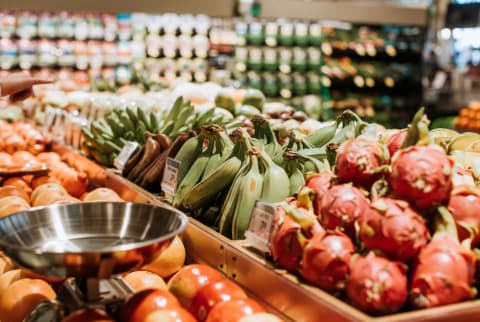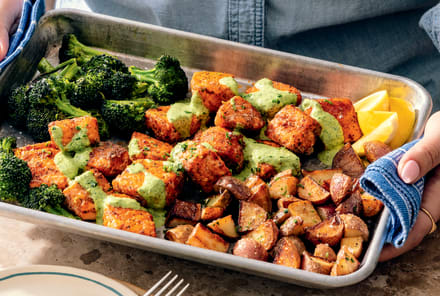Advertisement
The Important Reason To Stop Using The Term "Ethnic Foods"


Language influences our thoughts as well as our perceptions, and it has the ability to evoke feelings. We remember words used to describe people, places, and cultures that are not our own, and this shapes our future reactions.
In the current landscape, language has been weaponized and used to create a divide that reinforces the othering of groups that have historically been marginalized. The use of language that is dehumanizing and othering has become so ingrained and casual that we aren't always aware of it. This is happening across many parts of society—including in the culinary world.
The problem with the term "ethnic foods."
Take a stroll down the "ethnic" aisle of the grocery store and you'll start to see how non-European foods have been simultaneously devalued and exoticized.
This will be the aisle that holds foods from cultures that the grocer has decided are ethnic, while the remainder of the grocery store is not. You see, this is subtly telling us that "ethnic" foods are other foods, while pasture-raised poultry receives the respectful designation of heritage and is not sullied with the "ethnic" designation.
As Tambra Raye Stevenson, the founder of Women Advancing Nutrition Dietetics and Agriculture (WANDA), notes, the label "ethnic food" perpetuates the notion that any person who consumes these foods is an outsider. This language is used often when we speak about non-European traditional foods, particularly foods from African countries.
When we look back at colonization, "ethnic food" has long been thought of as less-than and unrefined. We have a long history of designating European cuisine as the social norm and labeling everything else as other. Gendered Innovations, a research group out of Stanford, defines ethnicity as groups that share a common identity-based ancestry, language, or culture. Working from this definition, European foods are not the dominant civilized food; they are simply an option among many foods from around the globe.
A new way to celebrate the global food system.
The time has come to find new terms to describe non-European-style cuisines that pay tribute to them in a respectful way: terms like traditional foods or heritage foods.
Heritage foods previously thought of as "ethnic foods" can and should be named based on their country of origin. In the same way we name French or Swiss cuisine, we can be intentional with our language and name Haitian food or Ethiopian food without generally calling them ethnic foods.
In my new cookbook, Eating From Our Roots, I talk about the importance of creating space for non-European and American foods as a part of the health discussion. I examine how these foods have been removed from the health lexicon and labeled as "unhealthy" and how to add them to your diet in a way that celebrates their flavors and preparation techniques.
I recommend using the book's recipes to encourage yourself and your dinner guests to reimagine what cuisines are normalized and which ones are othered in your life.
The takeaway.
It's time to reframe how we talk about global food. Generalizing and boiling cuisine down to "ethnic" erases the uniqueness and individuality of cuisines. Challenge yourself to become a part of the group that is committed to shifting the language and narrative that surrounds our rich and wide-reaching food landscape.
Watch Next
Enjoy some of our favorite clips from classes
Enjoy some of our favorite clips from classes
What Is Meditation?
Mindfulness/Spirituality | Light Watkins
Box Breathing
Mindfulness/Spirituality | Gwen Dittmar
What Breathwork Can Address
Mindfulness/Spirituality | Gwen Dittmar
The 8 Limbs of Yoga - What is Asana?
Yoga | Caley Alyssa
Two Standing Postures to Open Up Tight Hips
Yoga | Caley Alyssa
How Plants Can Optimize Athletic Performance
Nutrition | Rich Roll
What to Eat Before a Workout
Nutrition | Rich Roll
How Ayurveda Helps Us Navigate Modern Life
Nutrition | Sahara Rose
Messages About Love & Relationships
Love & Relationships | Esther Perel
Love Languages
Love & Relationships | Esther Perel












